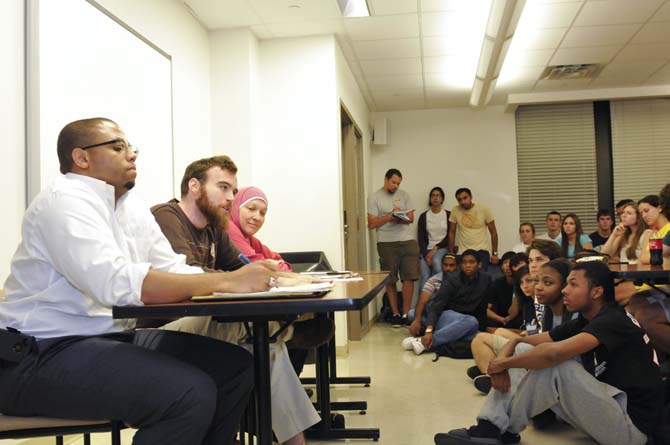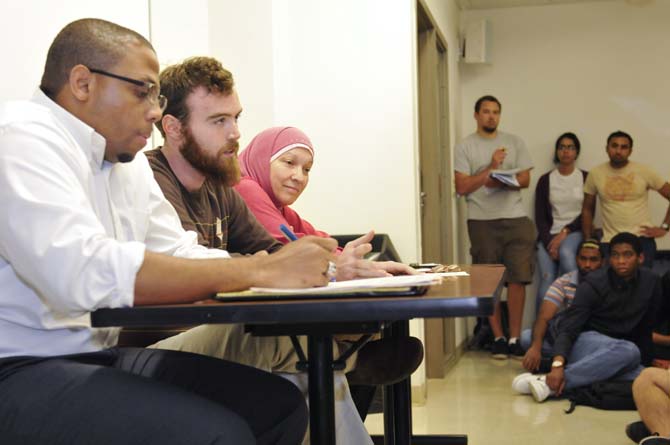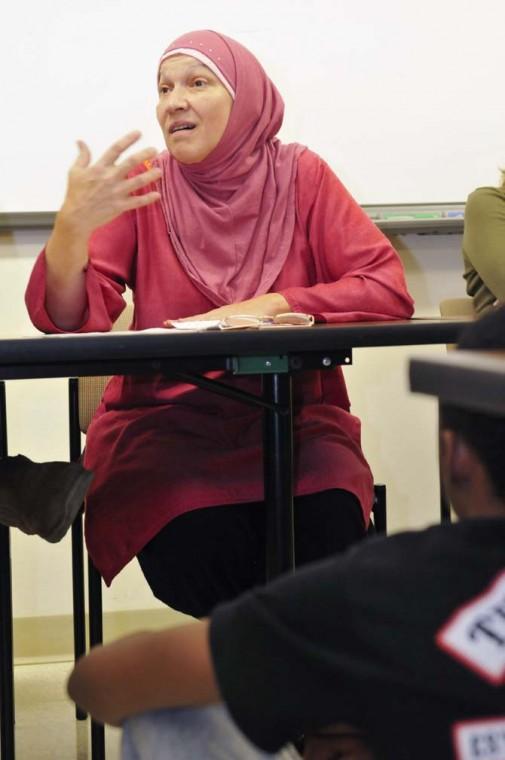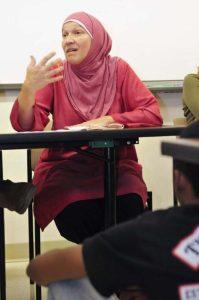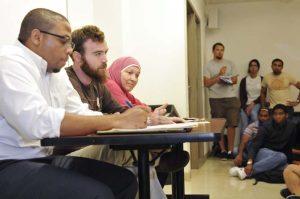West Hall was standing room only with a diverse group of students, professors and community members Wednesday evening for a panel discussing the anti-Islam video that sparked violence in the Middle East last week, touching on topics ranging from the video itself to general questions about Islam.
The event was scheduled to last until 8 p.m., but attendees stayed well past 9 p.m. to continue their discussion.
“There are a lot of huge misconceptions,” said University alumnus Ahmed Abdel-Khalek.
Associate professor of history and Rector of Global Connections Residential College Meredith Veldman moderated the panel, which consisted of visiting assistant professor of international studies Darrell Ezell, Muslim community member and National Director of Disaster Response Services for ICNA Relief USA Jane Aslam, assistant political science professor Laura Moyer and Vice President of the University’s Muslim Student Association Nicholas Pierce.
Moyer explained that Americans enjoy their right to freedom of speech, but not all nations have the same freedom.
“Speech can cause people to respond. That’s something we appreciate about our democracy. It’s also something that can be very frustrating,” Moyer said.
Aslam agreed that after so many offenses, Muslims have a right to be angry. Violence is not an excuse, but it is an explanation.
Veldman said the idea to have the panel came to her during a class lecture last Friday. She explained that one of her students came up to her after class and asked why people from the Middle East hated Americans.
“It hit me that there was a conversation that needed to be had here,” Veldman said.
Veldman said this is an interesting question because both sides feel the same way.
Aslam said that, like all major religions in the world, Islam is a peaceful religion.
“We look at the Quran burning, and we say, this is not representative of the U.S. It’s easy for both sides to think that everyone hates everyone else,” Moyer said.
Muslim and American students in attendance agreed that the media does not offer an accurate perspective. Students pointed out that only a small percentage of Muslim populations are protesting.
“Although something might be alien to you, it’s not harmful to you,” said one Bengladeshi student. “I think that we’re not confident that another culture might be equal to ours.”
Students wanted to know how stop the religious intolerance that led to videos like the one that sparked so much controversy.
“Social media is one way to fight back about that one interpretation that the Western world has it out against the Muslim world,” Moyer said.
Ezell said it takes dialogue to resolve conflict.


